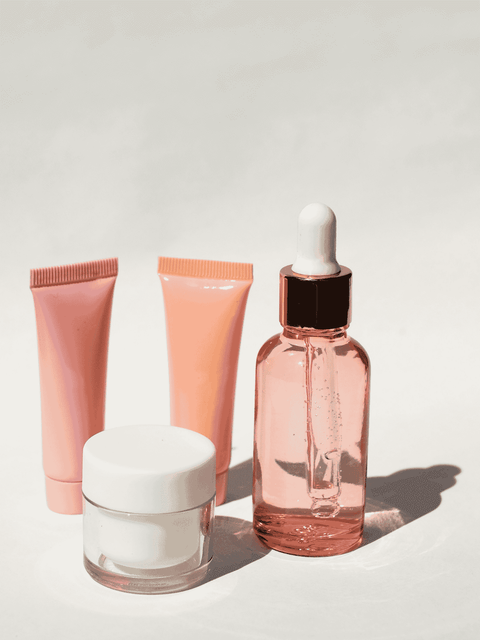
Hidden Animal Ingredients: What To Avoid In Your Skincare Products
Key Takeaways:
- Not All “Clean” Skincare Is Vegan: Many products labeled as “natural” or “organic” still contain hidden animal byproducts. Reading ingredient labels carefully is essential.
- Plant-Based Ingredients Offer Superior Benefits: Vegan alternatives like jojoba, pomegranate, and sea buckthorn deliver better hydration, collagen support, and skin repair—without animal cruelty.
- Transparency Is Your Best Tool: Knowing how to spot disguised animal-derived ingredients helps you align your skincare with your values. Trust brands that share sourcing clearly.
Isn’t it strange how something meant to care for your skin can quietly go against everything you believe in?
Behind soft scents and sleek packaging, many skincare products still rely on hidden animal-derived ingredients, camouflaged under unfamiliar names that most consumers wouldn’t recognize. For those seeking transparency, integrity, and nourishment from nature, this hidden layer feels out of step with the clean beauty movement.
At Sacred Rituel, we don’t compromise. As formulators and guardians of the skin, we craft vegan skincare products using only pure, cold-pressed botanicals, never animal byproducts or synthetic fillers. Our vegan cruelty free skincare and vegan body oil offer more than hydration; they offer a ritual of connection to your body and the planet.
In this piece, we’ll walk you through common animal ingredients found in skincare products to avoid, how to identify them on labels, and which truly clean, plant-based alternatives you can trust.
Why It Matters: What’s Really Hiding In Your Skincare?
Skincare is personal. It’s part of your daily rhythm, reflection in the mirror, and self-care. So it can feel unsettling to discover that many popular skincare products contain animal byproducts. These ingredients not only go against a vegan lifestyle but also offer no clear benefit over their plant-based counterparts.
What makes this even more frustrating is how often these ingredients are hidden in plain sight. Names like “tallow,” “collagen,” or “lanolin” might not raise immediate red flags, but they all trace back to animals. According to the MedlinePlus lanolin profile, lanolin is extracted from sheep’s wool and commonly found in moisturizers. Others, like “carmine” or “keratin,” sound scientific but mask origins that many consumers would choose to avoid if they knew.
This matters because clean beauty should be just that, clean, in every sense of the word. Ingredients shouldn’t just be natural; they should be ethical, sustainable, and transparent. Choosing vegan skin care means opting out of hidden harm and into integrity for your skin and the world it touches.

Common Animal Ingredients You Didn't Know Were There
Many skincare labels read like a science textbook, making it easy to miss animal-derived ingredients hiding in plain sight. Even products marketed as “natural” or “clean” often contain substances that don’t align with a vegan or cruelty-free lifestyle.
Here are some of the most common ones to watch out for:
- Lanolin: Often found in moisturizers and lip balms, lanolin is a waxy substance extracted from sheep’s wool. While it softens the skin, it’s a byproduct of industrial farming and unnecessary when there are plant-based oils that offer equal or better hydration.
- Carmine/Cochineal: This red pigment used in tinted skincare or makeup, comes from crushed beetles. It may appear on labels as “Natural Red 4” or “CI 75470,” which makes it easy to miss if you’re scanning for clean ingredients.
- Collagen and Elastin: Promoted for their anti-aging benefits, these proteins are typically sourced from the connective tissues of cows, pigs, or fish. What many don’t realize is that vegan skincare products can deliver the same firming and plumping effects using plant-based ingredients like sea buckthorn.
- Keratin: Found in hair and nail care, keratin is derived from animal horns, feathers, or hooves. Again, it’s completely replaceable with plant proteins that strengthen without harm.
- Tallow: Rendered animal fat, tallow is sometimes used in soaps and creams. It’s often unnamed, appearing only as “fatty acid” or “sodium tallowate,” but its origins are far from cruelty-free.
These ingredients not only undermine ethical choices but also overlook the vast power of botanicals. Clean, vegan cruelty free skincare offers gentler, more effective alternatives, without the baggage of animal exploitation.
How To Spot Animal-Derived Ingredients On Labels
Reading skincare labels can feel like decoding a foreign language, but identifying animal-derived ingredients becomes much easier if you know what to look for. Unfortunately, many are listed under names that sound harmless, scientific, or even healthy. Here’s how to get ahead of the confusion:
Look For Vague Terms
Words like “natural,” “fatty acids,” “proteins,” or even “collagen” aren’t always plant-based. These can come from either animal or plant sources, and unless the label specifies “plant-derived” or “vegan,” you can’t be sure.
Watch Out For Code Names And Inci Terms
Some animal ingredients are masked behind chemical names. For example:
- Carmine = CI 75470
- Lanolin = Adeps Lanae
- Tallow = Sodium Tallowate
- Beeswax = Cera Alba
Be mindful of hidden animal-derived ingredients, often disguised under code names and INCI terms. You can explore the full list in this guide to identifying animal-based ingredients in cosmetics.
Not All Cruelty-Free Products Are Vegan
Just because a product isn’t tested on animals doesn’t mean it doesn’t contain them. A product can be labeled “cruelty-free” and still include ingredients like honey, milk proteins, or gelatin. To ensure you’re buying truly vegan skin care, you need both labels: cruelty-free and vegan.
Trust Brands That Fully Disclose Their Sourcing
Truly transparent brands don’t just list ingredients, they share where they come from and why they’re used. Sacred Rituel, for example, uses only botanically sourced oils, flowers, and herbs, all disclosed in full. No filler, no fluff, and no animal byproducts, ever.
Once you start scanning with intention, you’ll quickly get better at choosing skincare products to avoid and supporting those that align with your values.

Sneaky Names For Animal Byproducts
Just because a product doesn't say “animal-derived” doesn’t mean it’s free from animal ingredients. Many non-vegan substances show up under neutral or scientific-sounding names, making it harder for conscious buyers to know what they’re putting on their skin. Here are some of the most misleading ingredients to watch out for in skincare products to avoid:
- Stearic Acid: Often used as a thickener or texture enhancer, stearic acid can be derived from either animal fat or plant sources. The problem is, most product labels don’t clarify the origin. If a product doesn’t specifically say “plant-based stearic acid,” there’s a good chance it’s not vegan-friendly.
- Glycerin: Glycerin is a common moisturizing agent in everything from cleansers to lotions. While it can be derived from vegetables, it's also frequently sourced from animal fats during soap production. Look for labels that mention “vegetable glycerin” or buy from verified vegan skincare product brands.
- Squalene: Squalene is a hydrating ingredient that is used to be sourced almost exclusively from shark liver oil. Although vegan sources like olives and sugarcane are now common, not all brands disclose where theirs comes from. Its stable form, squalane, is only cruelty-free if derived from plants, so always check the source.
- Elastin: Elastin is marketed as a firming, anti-aging ingredient but typically extracted from animal tendons and ligaments. It mimics your skin's natural elasticity but doesn’t integrate well into human skin. Botanicals like sea buckthorn are plant-based alternatives that work more effectively with your skin.
- Shellac: This glossy ingredient is made from the resin secreted by the lac bug and is often used in skincare and makeup for a polished finish. It’s not always clearly labeled and may appear under names like “resinous glaze.” For truly vegan cruelty free skincare, shellac should always be avoided.
Clean, Compassionate Alternatives That Work Better
Vegan skincare isn't just about avoiding harm, it's about choosing ingredients that work with your skin, not against it. Plant-based alternatives often outperform animal-derived ingredients, delivering nutrients, hydration, and long-term skin support with greater integrity. Here's how some of the best vegan swaps offer both performance and peace of mind:
Instead Of Lanolin → Cold-Pressed Jojoba Oil
Lanolin locks in moisture, but it's often sourced from sheep’s wool. On the other hand, cold-pressed jojoba oil mimics your skin’s natural sebum, providing lightweight hydration that balances oil production without clogging pores. It's ideal for sensitive and acne-prone skin, offering the same results with a gentler, plant-based profile.
Instead Of Collagen → Pomegranate & Sea Buckthorn Oils
Animal-derived topical collagen has limited absorption and provides only short-term benefits. In contrast, natural oils such as pomegranate and sea buckthorn are packed with antioxidants and essential fatty acids that encourage the skin to boost its own collagen production. These oils also help calm inflammation and enhance skin elasticity, delivering a lasting, radiant glow from within. This highlights the potential of pomegranate as a powerful cosmeceutical ingredient.
Instead Of Glycerin → Plant-Derived Glycerin
Glycerin helps the skin retain moisture, but its source matters. Plant-derived glycerin offers the same hydrating power without the ethical concerns of animal fats. When paired with botanical hydrosols, it leaves the skin soft, dewy, and fully refreshed.
Instead Of Keratin → Baobab & Tamanu Oils
Keratin is often extracted from animal horns or feathers. Baobab and tamanu oils offer similar strengthening and regenerative benefits, supporting skin renewal, elasticity, and recovery. They are rich in vitamins A and E and help reduce the appearance of scars and fine lines.
Instead Of Squalene → Olive-Derived Squalane
Shark-sourced squalene was once a staple in skincare, but today, olive-derived squalane offers a clean, ethical alternative. It provides deep hydration, a silky finish, and high absorption without clogging pores. Plus, it supports skin barrier repair, making it a favorite in vegan skincare products.

Final Thoughts
When it comes to skincare, it’s easy to focus only on results, hydration, glow, firmness without questioning how those results are achieved. But skincare is more than surface-level; it's a daily ritual, a relationship with your body, and a reflection of what you stand for.
Choosing products free from hidden animal ingredients invites more integrity into that ritual. It's about creating space for something cleaner, more honest products that are crafted with care, not compromise. As demand for vegan cruelty free skincare grows, so does the availability of truly ethical, plant-based alternatives that support your skin and the world around you.
Every ingredient tells a story. The choice is yours: continue the story of unexamined convenience, or step into one of conscious care, where even your vegan body oil speaks of compassion, transparency, and respect.
Read also:
- How To Read Labels: Identifying Truly Natural Skincare
- Top 10 Natural Ingredients For Glowing Skin
- Natural Skincare Routine For Every Skin Type
Frequently Asked Questions About Skincare Products to Avoid
Are animal-derived ingredients bad for your skin?
Not necessarily from a performance standpoint, but they’re not always better than plant-based options. The issue is often about ethical sourcing, transparency, and sustainability. Many consumers now prefer vegan skincare because it aligns with cruelty-free and clean beauty values.
Why don’t companies list the origin of their ingredients?
Regulations often allow companies to use broad or scientific terms without clarifying the source. This can hide whether an ingredient is animal- or plant-derived. It creates confusion for consumers who care about ethical sourcing.
Can a product be organic but not vegan?
Yes, organic only means the ingredients are grown without synthetic chemicals, it doesn’t guarantee they’re plant-based. An organic product can still include ingredients like beeswax, milk proteins, or animal-derived collagen. Always check for a certified vegan label if that matters to you.
Are there certifications for vegan skincare products?
Yes, trusted certifications like Leaping Bunny and Vegan Action can verify whether a product is both cruelty-free and free of animal ingredients. These certifications help remove guesswork from shopping. However, not all ethical brands go through certification, so reading ingredient lists is still important.
Is fragrance in skincare typically vegan?
Fragrance is often a vague term on labels and can be derived from animal or synthetic sources. Some fragrances contain musk or ambergris, which come from animals. Look for labels that say “natural fragrance” or “essential oils only” to stay in line with vegan values.
What makes a body oil vegan?
A vegan body oil contains only plant-based oils and botanical extracts, with no animal fats, beeswax, or animal-derived scents. It also avoids animal testing in its production process. These oils often offer deeper hydration without clogging pores.
Can I still get anti-aging benefits from vegan skincare?
Absolutely. Many plant-based oils and extracts naturally promote collagen production, improve elasticity, and reduce inflammation. Ingredients like rosehip, pomegranate, and sea buckthorn are excellent for aging skin.
Are vegan skincare products better for sensitive skin?
Often, yes. Vegan skincare avoids harsh animal-based additives and is more likely to contain clean, gentle botanicals. That said, always patch test new products, as plant-based doesn’t always mean allergy-proof.
Is it easy to transition to a fully vegan skincare routine?
Yes, especially with so many clean beauty brands offering vegan alternatives. Start with one product at a time, like a vegan body oil or cleanser, and read labels carefully. Over time, you’ll learn which brands and ingredients align with your values.
Do vegan skincare products expire faster?
Because they’re often free from synthetic preservatives, some vegan products do have shorter shelf lives. Look for cold-pressed oils in dark glass bottles to preserve freshness. Store them away from heat and sunlight for best results.
Sources:
- Lanolin - an overview | ScienceDirect Topics. (n.d.). Www.sciencedirect.com. https://www.sciencedirect.com/topics/agricultural-and-biological-sciences/lanolin
- Gad, H. A., Roberts, A., Hamzi, S. H., Gad, H. A., Touiss, I., Altyar, A. E., Kensara, O. A., & Ashour, M. L. (2021). Jojoba Oil: An Updated Comprehensive Review on Chemistry, Pharmaceutical Uses, and Toxicity. Polymers, 13(11), 1711. https://doi.org/10.3390/polym13111711
- Gęgotek, A., Jastrząb, A., Jarocka-Karpowicz, I., Muszyńska, M., & Skrzydlewska, E. (2018). The Effect of Sea Buckthorn (Hippophae rhamnoides L.) Seed Oil on UV-Induced Changes in Lipid Metabolism of Human Skin Cells. Antioxidants, 7(9), 110. https://doi.org/10.3390/antiox7090110
- Michalak, M. (2022). Plant-Derived Antioxidants: Significance in Skin Health and the Ageing Process. International Journal of Molecular Sciences, 23(2), 585. https://doi.org/10.3390/ijms23020585

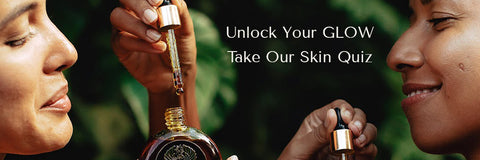
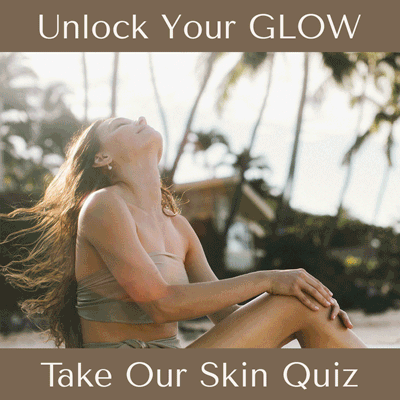
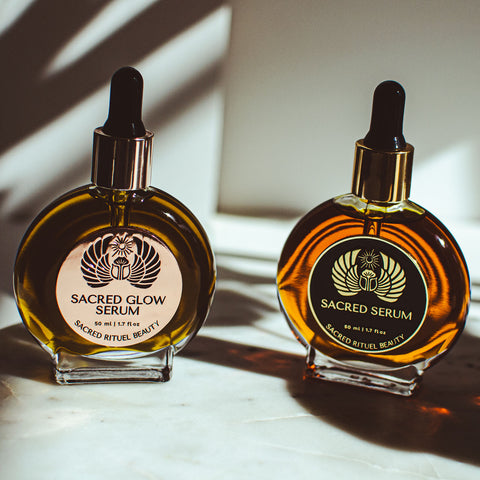
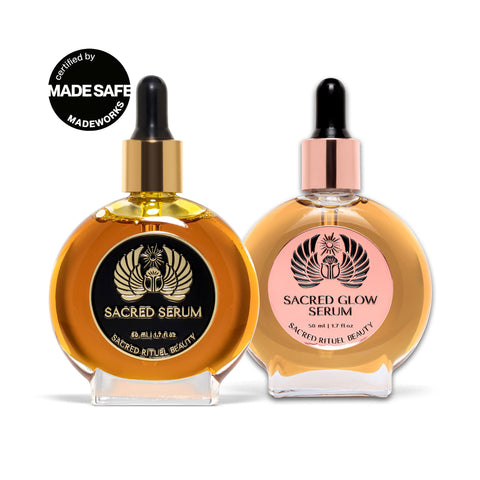
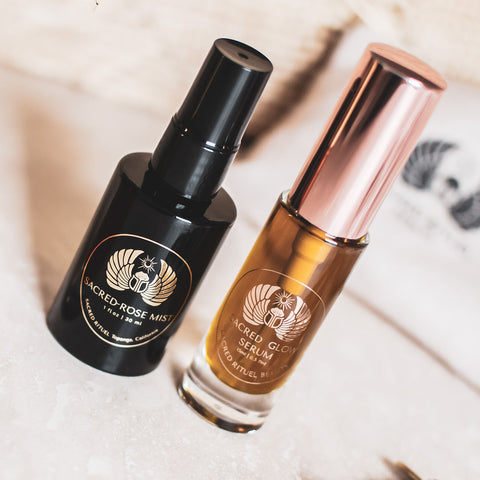
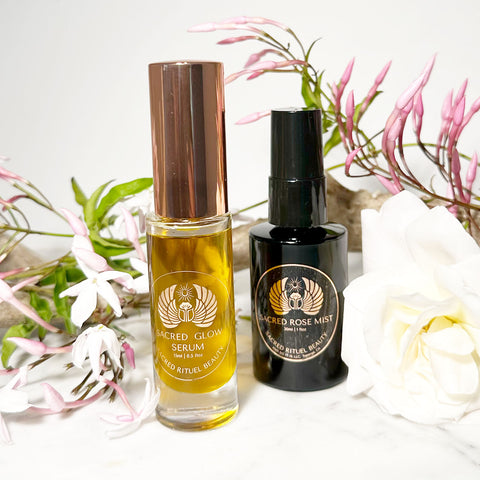
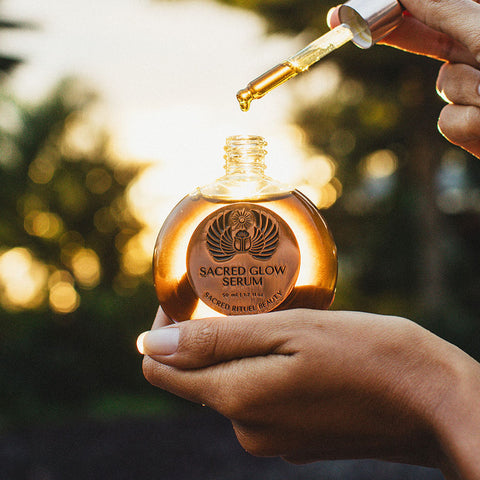
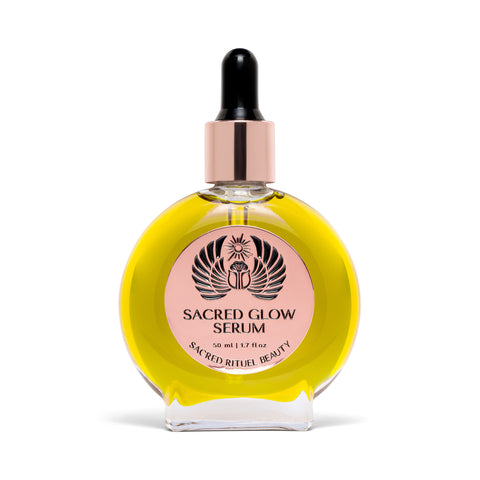
Comments (0)
There are no comments for this article. Be the first one to leave a message!